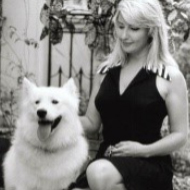
Animation educates pet owners on safe antibiotic use.
A new animation has been released to teach pet owners about responsible use of antibiotics in pets.
Released to coincide with World Antibiotic Awareness Week (WAAW), which takes place annually between 18-24 November, the animation explains antimicrobial resistance, and how pet owners can use antibiotics safely.
Created by the Bella Moss Foundation in collaboration with the National Office of Animal Health (NOAH), the animation supports the WAAW campaign and encourage the public to consult their veterinary surgeon and understand that antibiotics are not always the most effective treatment.
The animation shares key messages to help combat antibiotic resistance, including 'always give antibiotics exactly as directed', 'never save them for future use and never share them with others', 'always give the right dose' and 'take your pet's unused antibiotics back to your vet for safe disposal'.
Dr Tim Nuttall, senior lecturer at the University of Edinburgh and Bella Moss Foundation clinical adviser, said: It is important to realise that humans and companion animals, such as dogs and horses, are often in close contact and bacteria can be transferred in both directions. We also use similar (if not the same) antibiotics.
“Therefore, the one health initiative recognises that veterinary and medical healthcare are intimately related, and progress needs cooperation. We all have a role in preserving the efficacy of antibiotics for the future.
“Medical professionals and vets need to reduce, refine, and replace their antibiotic use. This ensures that they are only used in patients that need them.
“Medical patients and animal owners can help by reducing the demand for antibiotics, accepting other treatments for themselves and their pets, and, when antibiotics are necessary, making sure that the instructions are followed and that the course is completed.”
Entitled 'Proper use of antibiotics', the animation is available to watch here.
Image (C) The Bella Moss Foundation



 BSAVA is to partner with BVA Live (11-12 June 2026) to champion clinical research.
BSAVA is to partner with BVA Live (11-12 June 2026) to champion clinical research.